Stuck in the Middle with Dudes: Men on the Verge in How Heavy This Hammer and Suntan
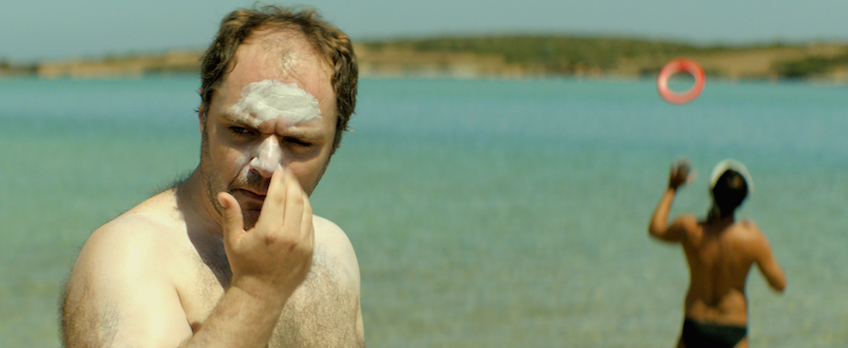
Doosie Morris, Critics Campus 2016
Boys will be boys, or so they say — and so, it seems, will fully grown men. At least that’s what directors Kazik Radwanski and Argyris Papadimitropoulos seem to be suggesting with their 2016 MIFF offerings, How Heavy This Hammer, a coarse Canadian character study, and Suntan, a disquieting cautionary tale of destructive misdirected affections.
They’re nothing new, of course, these stories of middle-aged men setting themselves adrift in search of something lost or longed-for, causing all kinds of nuisance along the way and often returning empty-handed or defeated. From dreary suburbs to sun-soaked beaches, How Heavy This Hammer and Suntan offer long, sometimes hard, looks at what can drive these ambiguous masculine appetites, what (if anything) can sate them, and the devastation they can wreak if they run awry. Taking alternate routes down a well-worn path, Erwin (Erwin Van Cottheim) of How Heavy This Hammer and Kostis (Makis Papadimitriou) of Suntan grapple with one of life’s least-revered rites of passage: the coming-of-middle-age.
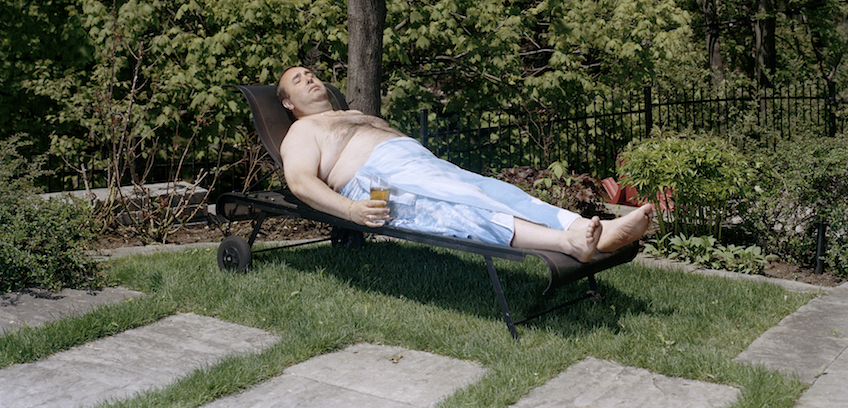
In the suburbs of Toronto, Erwin – overweight and under-enthused – is sleepwalking through his working-class existence, stuffing his jowly, despondent face with poutine and lager and playing Viking strategy games on his computer. Such mindless diversions are at odds with a comfortable domestic life that carries on around him despite his obvious lack of engagement. A patient wife, two healthy sons, a nondescript sales job, friends at the rugby club and a sense of stoic self-confidence that borders on delusion round out what appears to be a basically agreeable existence. But Erwin is definitely not feeling it, and he doesn’t seem to know why. He bores through life perpetually annoyed and puzzled by people’s desire to make sure he’s okay. Gentle inquiries to his wellbeing are rejected out-of-hand: “I don’t want to talk about it” is his mantra.
This inscrutable monolith is deep in a funk so potent and inexplicable that when, without warning or explanation, he takes leave of the family residence and moves into a room above a friend’s bar, no one even really mentions it. He tries his hand at internet dating, buys a dog from the shelter, scoffs ever more burgers and hangs out with his sons as a part-time parent, all the while remaining resolutely unwilling to discuss or even acknowledge his internal struggles – whatever they may be. Radwanski seems uninterested in pursuing any direct lines of inquiry, and, to the film’s detriment, obliges Erwin’s willful opacity. So it goes that Erwin’s convalescence above the bar carries on uninterrupted. Like the marauding Vikings of his virtual world, Erwin is driven mechanically forward in an endless pursuit of elusive fulfillment by formless but powerful urges to eat, have sex with, or pummel almost everything that comes across his path.
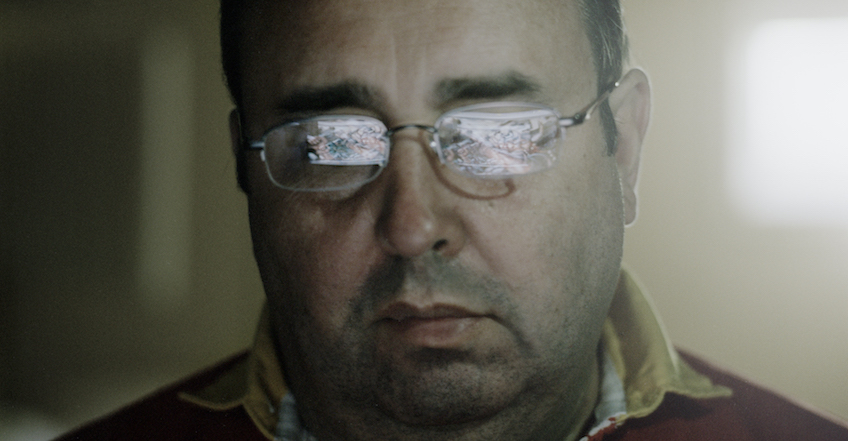
The unflattering verité style of Radwanski’s subject-tracking keeps us uncomfortably close to Erwin, framing him tightly as he chomps through sloppy junk food, heaves and pants on the rugby pitch, or croons Belgian pop songs alone in the car. His private sing-a-longs and the sweeping arias that bookend the film are all that punctuate the otherwise scoreless, unsentimental soundscape.
While Erwin’s bleak and inconclusive trudge around the outskirts of his own depression is Radwanski’s nod to the intangible nature of some middle-age deficiencies and desires, in Suntan Papadimitropoulos materialises them fully formed and entirely palpable. Radwanski’s depiction of vacant, half-hearted meanderings in Toronto contrasts starkly with Papadimitropoulos’s intense focus on a single object of desire, the alluring beach nymph Ana (Elli Tringou), who regrettably becomes framed as an antidote to the generalised malaise of another aimless, hungry soul.
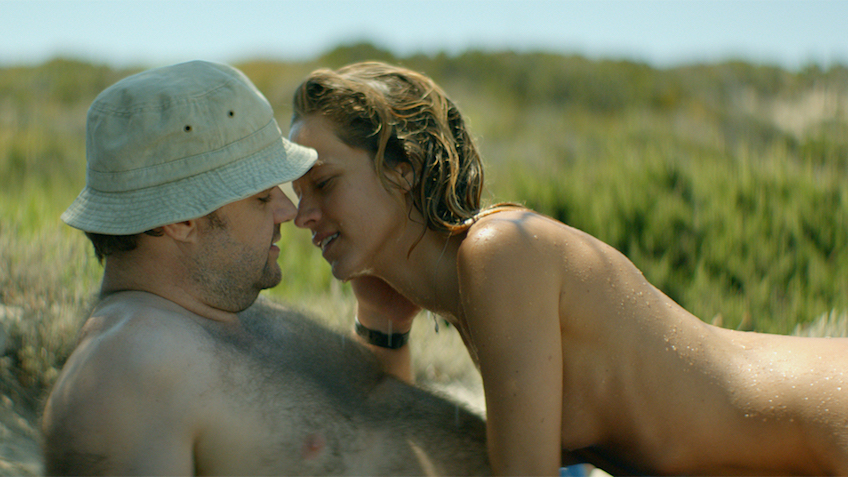
On the Greek island of Antiparos, Kostis takes up residence as the local GP and waits unhopefully for his mood to lighten. The dreary off-season sees Kostis quietly settle into town, tending to the small maladies of elderly villagers, eating frozen meals, and vaguely nursing the wounds of some unspecified personal misfortune. As the clouds begin to clear and summer crowds descend, Kostis continues his innocuous, weary existence on the periphery. The arrival at the clinic of the exuberant Ana – minor quad bike accident victim, libertine and devastating siren – shakes Kostis from his torpor. The spellbinding visit from her and her merry band of international boho buddies inadvertently reignites some dark and desperate fire within him that continues to smoulder – often dangerously stoked by Ana’s off-hand sexuality and blatant seductions. Like a paunchy, hairy adolescent yearning to be plucked from isolation, Kostis falls willing victim to the cool kids and their casual, insincere invitations. Their irreverent, insipid antics are mysterious and intoxicating to him, and he soon finds himself caught in a dizzying spin towards surrender. Against some vague sense of better judgment, Kostis just can’t resist Ana’s luminous pull, and in his desperation swiftly resigns himself to a contract role in the group as benefactor and novelty-act. Ana lavishes him with false, condescending compliments that he wistfully laps up. But as her interest in tending to her vulnerable stray wanes his darker, less convivial compulsions bubble worryingly to the surface. Suddenly, the party isn’t over, but Kostis has worn out his welcome. The shades come down on his moment in the sun and his reaction is shattering, but afforded a generous, restrained understanding by Papadimitropoulos.
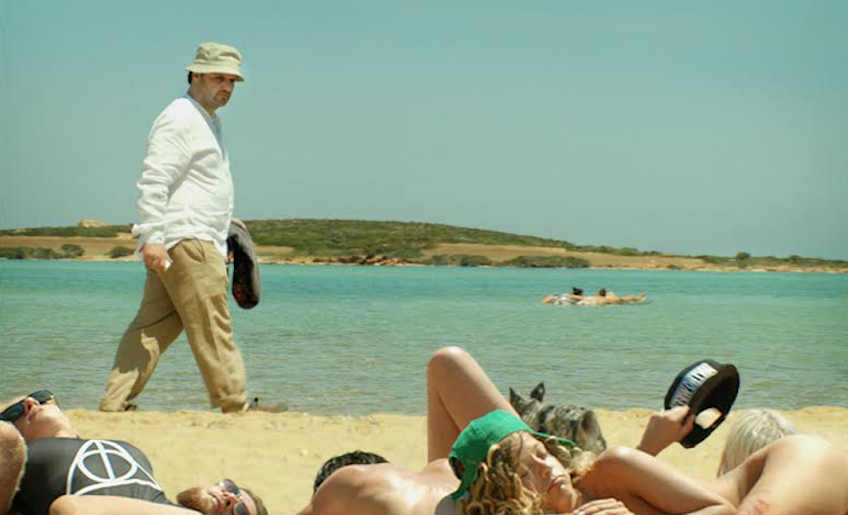
While the views on Antiparos are idyllic, there remains a distinct ground-level flavour to the shots. Papadimitropoulos roots our perspective firmly in the interests of the back-packers, of locals, of men like our Kostis, whose distant, longing stares and covert peeks fall squarely on the supple, bronzed subjects rather than the timeless Mediterranean vistas.
A deep hunger within both these men for something more could, at a painful stretch, be seen as some primal hangover, terribly out of step with modern life – yearnings, stirrings and restlessness that conflict harshly, tragically, with the worlds they have carved out as 21st century men. But it would be irresponsible, and boring, to attempt to use these primordial drivers as a scapegoat for all Erwin’s and Kostis’s conflicts and poor choices, not to mention the terrible outcomes they create for those around them. Both Radwanski and Papadimitropoulos seem to feel this, and, instead of vilifying or absolving these lugs, look for explanation in the catastrophic breakdowns in communication – the chasms between genders and generations that eventually consume these feckless, well-meaning yet dreadfully misguided blokes. Their stories inspire little sympathy, but in their own lamentable way, these oafish and dangerous men still manage to stir a begrudging compassion.